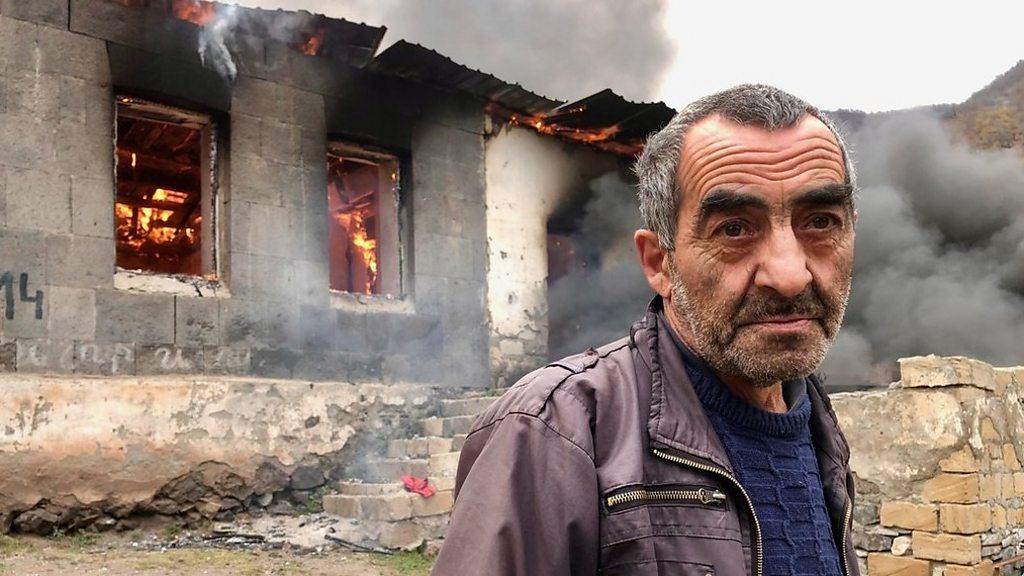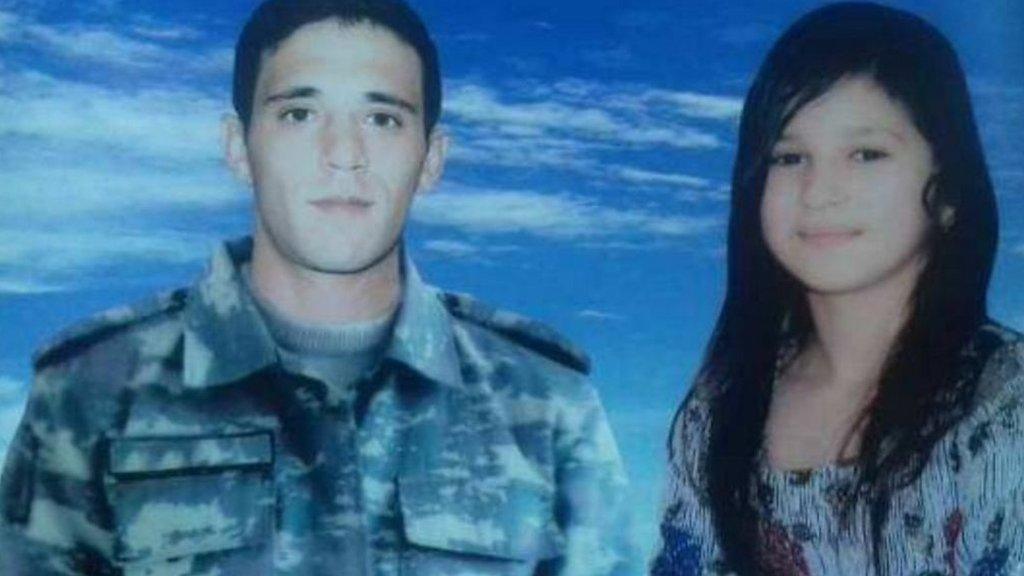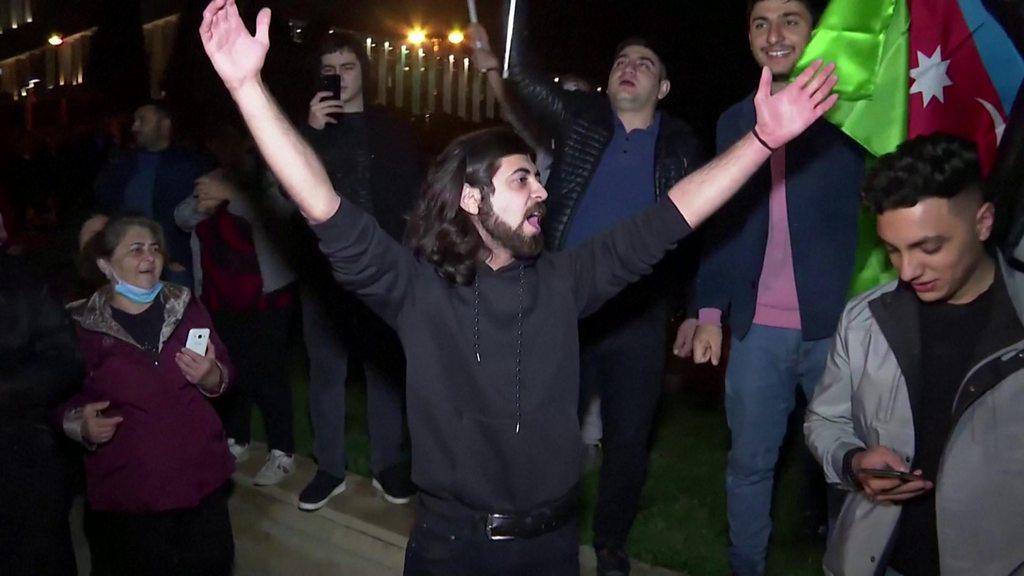Russia bans Azerbaijani tomatoes over 'pesticide concerns'
- Published

Russia says it has identified dangerous substances in tomatoes from Azerbaijan (file photo)
Russia has announced a ban on importing tomatoes grown in Azerbaijan, which are the country's second-largest export to its neighbour, citing safety concerns about the use of pesticides.
The move comes after Azerbaijan fought Russia's ally Armenia in a six-week war over the region of Nagorno-Karabakh.
The prohibition comes into force on Thursday, which is the day Azerbaijan will hold a victory parade.
Some analysts see the tomato ban as a riposte.
The embargo is "Russia's response to Azerbaijan's victory parade," Gubad Ibadoghlu, a policy analyst at the Baku Economic Research Center in Azerbaijan, told AFP news agency.
But Russian agricultural watchdog Rosselkhoznadzor said the ban was necessary to "prevent the import and spread" of pesticides to Russia after it said it identified dangerous substances in recent cargo.
Azerbaijan's tomatoes account for more than 30% of the fruit supplied to Russia.
Nagorno-Karabakh: The families burning down their own homes
Azerbaijan was part of the Soviet Union until it proclaimed independence in 1991, and Russia has long been an important trading partner for the country of nearly 10 million people. Petroleum products are Azerbaijan's top export.
Russia is keen to show it remains powerful in the Caucasus region but experts say the war revealed the limitations of its reach in its former empire.
Analyst Gubad Ibadoghlu added that Russia - a key supplier of weaponry to Armenia - would see the display of Armenian military equipment seized by Azerbaijan during its victory parade as a snub.
What happened in the conflict?
Fighting broke out on 27 September between Armenia and Azerbaijan but it was the latest in a series of skirmishes and wars since the late 1980s.
The two countries had never resolved the territorial dispute over Nagorno-Karabakh.

That region is part of Azerbaijan, but its population is majority Armenian and it is largely controlled by Armenia. Azerbaijan is majority Muslim and has close ties to Turkey, while Armenia is largely Christian and allied to Russia.
After six weeks, the fighting stopped at the end of November when both sides agreed to sign a Russian-brokered peace deal. Azerbaijan gained control of several areas, which it will hold onto, and Armenia promised to withdraw troops from them.
Armenia says 2,425 of its soldiers were killed, while Azerbaijan claims to have lost 2,783 of its forces.
At least 143 civilians were killed, and tens of thousands were displaced after losing their homes to destruction or leaving when soldiers entered their communities.
Nagorno-Karabakh: The family that lost everything
- Published13 November 2020

- Published14 November 2020

- Published10 November 2020
